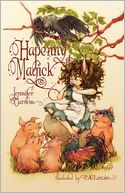Cover Posing for a Good Cause
TOTAL RAISED: $15,430
Long ago (in internet terms), I posted a series of pictures in which I attempted to duplicate the cover poses of various fantasy heroines. This quickly became my most-viewed blog post ever. Later, in response to various calls of, “But men are objectified too!” I did a follow-up, posing like the men in order to illustrate the difference in how men and women are portrayed.
Since then, I regularly get emails and Tweets pointing me to genderswapped Avengers, men posing like car wash cheerleaders, and more. (I now have a better understanding of how John Scalzi must feel as the internet’s unofficial Emperor of All Things Bacon.)12/16/12
The other thing I get are requests to pose like various covers, whether it’s the Catwoman comic or the latest spinally-challenged urban fantasy heroine. At one point, a friend on Twitter said they’d pay $5 to see me try a particular pose. And that gave me an idea…
Welcome to the first annual Cover Pose Fundraiser
I spent a while trying to decide what cause I wanted to support. And then something happened. One of my high school classmates Jen posted on Facebook that she needed a ride to the hospital. Her eleven-year-old daughter Madison was in the hospital as a result of complications from a rare condition known as Aicardi Syndrome. It was the first time I had seen Jen in ages.
Madison died a few days later.
I had learned about Aicardi several years earlier, from my friends Michael and Lynne Thomas, both of whom are active in the SF/F community. Michael is an author as well as Managing Editor at Apex Magazine, and has been an Associate Editor for Mad Norwegian Press. Lynne is a curator, editor, podcaster, and two-time Hugo winner.
Their daughter Caitlin has Aicardi Syndrome. I felt fortunate to be able to introduce Jen to Michael when Madison was first diagnosed, trying to connect her to a source of information and support.

This is a condition which affects 1 in 105,000 girls born in the U.S. It causes brain malformation, visual problems, seizures, developmental delays, and other medical complications. Most research puts the life expectancy for people with Aicardi between 8 and 16 years.
I can’t imagine what these families go through trying to care for their children. It’s one thing to have a child with a known condition, like diabetes. (I swear, I can’t throw a cupcake without hitting another diabetic.) It’s hard, but diabetes is treatable. It’s better known. There are others who can ease your fears and help you through.
Aicardi Syndrome is incurable. It’s hard to diagnose. It’s scary and overwhelming, and most people have never heard of it.
The Aicardi Syndrome Foundation is pretty much the only source in the United States for funding into research on this condition. The foundation also funds a family conference every two years, paying for hotel rooms, flying in researchers, and even covering many of the meals. It unites families fighting this disease, connecting them to a network of support they might otherwise never find.
I’m asking people to donate to the Aicardi Syndrome Foundation. In exchange, I will give you what the internet has deemed my most important contribution to society: ridiculous cover poses. All you have to do is email me at ASF@jimchines.com letting me know how much you donated. If you give more than $25, please include a copy of your receipt from the foundation.
I’ll pick donors at random to suggest covers for me to try to duplicate. My only rule is that it has to be PG-13 or less.
As an added bonus, if we hit $1000, I’ll challenge award-winning and bestselling author John Scalzi to a competitive pose-off.
Targets at which you get new cover poses are:
- $100 – Goal reached! Cover posted: Tangled Threads, by Jennifer Estep.
- $250 – Goal reached! Cover posted: Man of my Dreams, by Johanna Lindsey.
- $500 – Goal reached! Cover posted: At Grave’s End, by Jeaniene Frost.
- $750 – Goal reached! Cover posted: Catwoman Vol. 1: The Game (The New 52).
- $1000 – Pose-off with John Scalzi! – Challenge posted, and it is GLORIOUS! Vicki Pettersson’s The Taste of Night.
- $1500 – Goal reached! Pose coming soon: The Dragon Variation, by Sharon Lee and Steve Miller.
- $2000 – Goal reached! Cover posted: Summoning, by Carol Wolf.
- $2500 – Pose-off with Scalzi, Round Two. Scalzi has challenged me to a Christmas-themed rematch! Challenge Posted: Christopher Bennett’s Only Superhuman.
- $3000 – Goal reached! Cover posted: A Brush of Darkness, by Allison Pang.
- $3500 – Goal reached! Cover posted: Fear Itself: The Fearless, Volume 1 #12.
- $4000 – Goal reached! Cover posted: Captain Vorpatril’s Alliance, by Lois McMaster Bujold.
- $5000 – Goal reached! Behold the group cover pose for Young Flandry, starring yours truly, along with John Scalzi, Pat Rothfuss, Charles Stross, and Mary Robinette Kowal!
- $6000 – Goal reached! Pose coming soon: Green, by Jay Lake.
- $7000 – Goal reached! Cover posted: Alien Diplomacy, by Gini Koch.
- $8000 – Goal reached! Cover posted: Bitten, by Kelley Armstrong (HC edition).
- $9000 – Goal reached! Cover posted: Fangs for the Mammaries, edited by Esther Friesner.
- $10,000 – Goal reached, thanks to a very generous donation by Joe Posner. Joe asked for a recreation of Kevin Bolk’s Avengers Booty Assemble pic, which brings a whole new level of meta-parody to this thing. I’m still thinking about how best to do this one.
- $12,500 – Goal reached! Cover posted: Phoenix Rising, by Pip Ballentine & Tee Morris. (See also Tee and Pip’s awesome response here!)
- $15,000 – Holy crap. Goal reached! Looks like I’m going into the calendar business! I’m thinking I’ll probably aim for a 2014 calendar to give me time to do this right. I’ll try to do both downloadable wallpapers and a printed calendar. Thank you all so much!!!
So there you have it. I’ll keep the fundraiser open through the end of the year, and will update regularly with the total raised and with links to the cover poses as we hit our goals.
Thank you.






 Twice in a row now I’ve found myself reading a
Twice in a row now I’ve found myself reading a  I spent much of the drive to New York last week listening to
I spent much of the drive to New York last week listening to